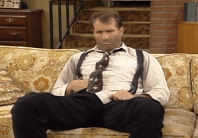
I try not to let alcohol’s dominance of the cultural zeitgeist get to me. I used to drink socially, many moons ago, and I didn’t always abuse it. There are a lot of people out there who can drink without turning into an alcoholic, I get it. The marketing of alcohol in our culture is aimed at these people, purportedly (though 10% of all alcohol consumers purchase more than 60% of all alcohol).
I am not one of these people. You probably aren’t either, if you’re reading this. We may want to be, but that ship has sailed.
When I was one of those people, grocery shopping certainly didn’t bother me so much. When I started taking my recovery seriously, I turned it into a military operation. I’m in that store to accomplish an objective. I’ve got a list of things to acquire, the mission parameters are clear. There will be no deviation from the plan. I’ll do what I came to do and get the hell out of there.
Thankfully, this wasn’t something that lasted forever; the longer I was sober, the less I cared about being in the same building with my drug of choice. Not that you’ll find me pausing for any reason in the beer aisle — part of me will never be comfortable there.
The marketing of alcohol in our culture doesn’t stop at end-caps, product placement, or a pyramid of beer cases you see once a week at the supermarket. Its prevalence in pop culture and other media can almost be overwhelming at times. Every other non-truck commercial during sporting events, every romantic comedy that needs its characters to do something stupid and make a relationship-defining mistake, every “this broadcast brought to you by” tag line — drinking, drinking, drinking.
Alcohol has become a monument in our culture — and its use isn’t even that prevalent in the real world: 43% of American adults don’t drink, and 15% of them have never had a drink in their lives. Excluding movies that are actually about alcoholism and recovery, I’m having trouble coming up with, say, an R-rated comedy that doesn’t portray not just the use, but the abuse, of alcohol. Some of the most popular films of the last few decades feature this explicit abuse of alcohol and drugs as their central plot device.
Why does alcohol get such a pass? It’s no less dangerous or addictive than a litany of other mind-altering substances. And yet when media involves the use and overuse of alcohol — take Cheers, for example, or How I Met Your Mother — it’s funny or cool. Blacking out isn’t depicted as dangerous or irresponsible — it’s hilarious. Can you imagine a sit-com that casually and light-heartedly involved crystal meth? Perhaps addictions that don’t involve a drug, then — gambling? Overeating? A lot of comedy gold to mine there?
Breaking Bad was great television, but it certainly didn’t have a lot of aspirational characters.
It even seems, at some level, that our culture accepts alcohol as a method of self-medicating. Chronic pain from old injuries you got when you scored four touchdowns in one game for Polk high? Dealing with some kind of extremely stressful event or situation? Feeling depressed? If you trust your television, it’s got an answer to these problems for you. And even if a particular character’s clearly and openly suffering from alcoholism, that’s presented as a personality trait. A quirk. Not a disease.

It’s fine. There’s a laugh track.
For some reason being an alcoholic is funny. I’m all about making jokes, but through the lens of recovery, a lot of the alcoholism-related humor waters the realities of the disease down to make it more palatable to the average viewer. As if we couldn’t possibly relate to taking a dangerous, sometimes deadly, disease seriously, and we’d rather be irresponsible than give up our hedonistic pursuits.
(Oh. Right.)
I know I’ve got a bad habit of introducing and explaining problems without providing some kind of solution. I know that’s not exactly the most constructive behavior, but it can be cathartic. You should try it sometime – I’m not the only one who can post these blogs!
I’m not sure what the solution is here, either. Short of going Amish, you kind of just ignore it. I know that’s terrible advice. if my therapist told me to “just kind of try to ignore” my problems I’d wonder what I was paying for. You don’t hear a lot of hey-what-are-you-gonna-do’s from AA sponsors. Alas, what else can you do here?
With time and experience in recovery, the pervasive marketing of alcohol is still something I notice, but it’s mostly background noise. When it does bother me, I try to remind myself of why it bothers me so much, and in a small way that “bothered” feeling becomes a therapeutic utility. It reinforces my desire never to drink again because I’m so insulted that 30 seconds of beer commercial affected me to such a degree. Maybe that says more about me than it does about alcohol. But it works.

Another great one!